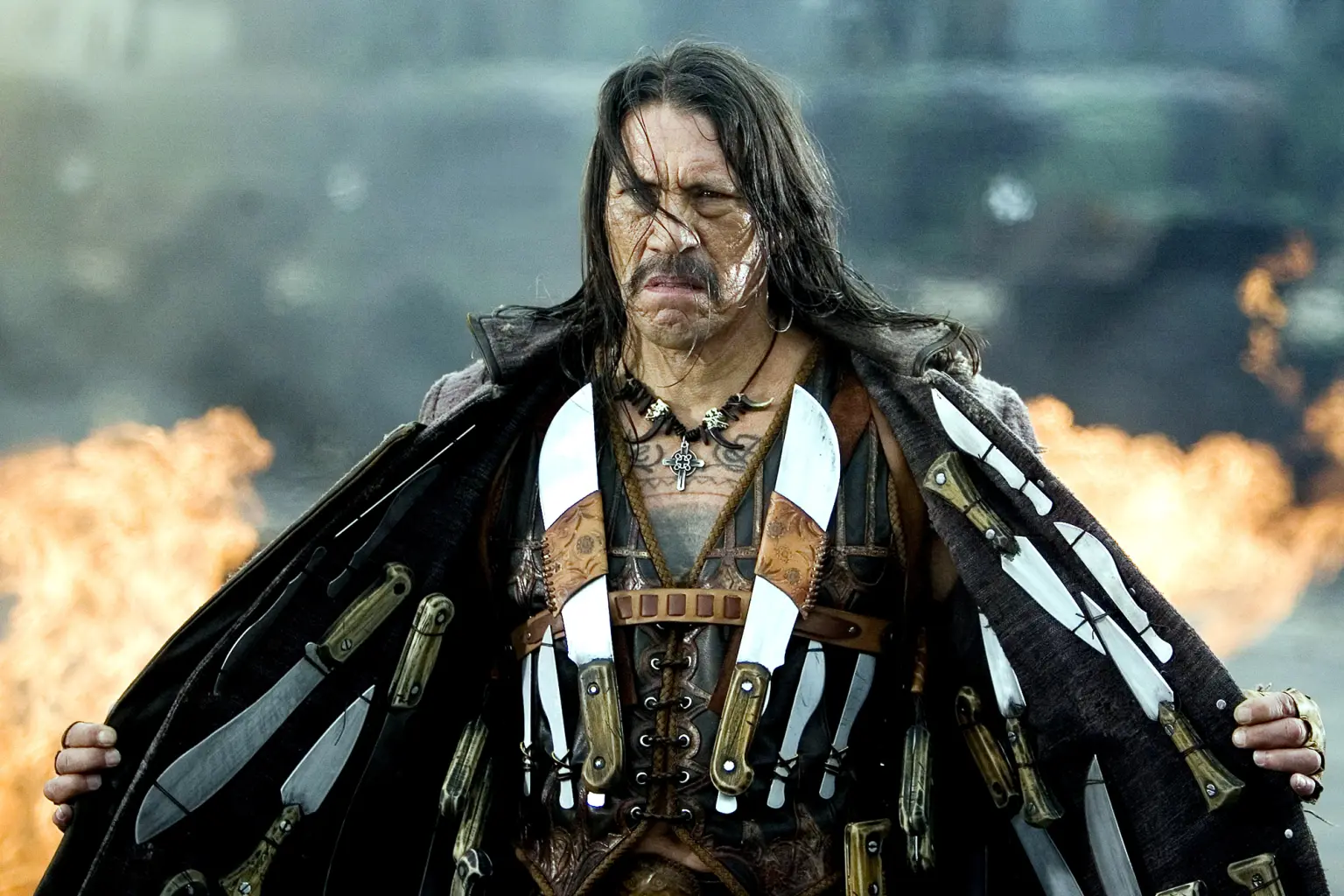In 1993, actor Danny Trejo found himself inside San Quentin State Prison, shooting scenes for the film “Blood In, Blood Out.”
As he walked through the cells designated for filming, a sense of familiarity washed over him.
Trejo recalled a past incident where a fellow prisoner had saved him from harm by stabbing an attacker on the same stairs he now climbed.
One of the cells, C550, was particularly significant to Trejo as it had been his home from 1966 to 1968 due to his involvement in selling heroin to an undercover officer.
After revisiting this cell during filming, Trejo, accompanied by another ex-prisoner, took a moment to express gratitude for their freedom from addiction and incarceration through a heartfelt prayer.
Despite his tumultuous past, Trejo has amassed an impressive resume with over 300 roles in films and TV shows.
His iconic performances in projects like “Spy Kids,” “Breaking Bad,” and “Machete” have solidified his status as a prominent figure in Hollywood, notably as the first Chicano action star.
Trejo's journey to success was far from conventional.
Battling addiction and criminal activities from a young age, he endured stints in notorious prisons such as San Quentin and Folsom.
His rugged appearance, adorned with prison tattoos, paints a picture of resilience and toughness that transcends his on-screen persona.
Following a transformative experience in 1968 that led him to sobriety and faith, Trejo dedicated himself to helping others break free from the clutches of addiction.
In 1985, a pivotal encounter on the set of “Runaway Train” kickstarted his acting career when he was offered a role as an extra and later became involved in training actor Eric Roberts for a boxing role.
Embracing his newfound passion for acting, Trejo seamlessly transitioned into the industry, leveraging his authentic background and tough demeanor to land impactful roles.
His commanding presence on sets like “Death Wish 4” caught the attention of seasoned actors such as Charles Bronson, who recognized Trejo's unique blend of intensity and authenticity.
Throughout his career, Trejo's reputation extended beyond the silver screen as he became known for offering guidance and support to those in need.
His role as a problem solver was exemplified during an incident on the set of “Last Light,” where he diffused a potentially volatile situation involving a fired actor threatening the director.
Trejo's versatility as an actor shone brightly in unexpected projects like “Muppets Most Wanted,” where he found solace and emotional release amidst personal challenges.
Collaborating with acclaimed director Robert Rodriguez further elevated his status, notably with his portrayal of Uncle Machete in the “Spy Kids” series, which endeared him to younger audiences worldwide.
From his humble beginnings as a heroin dealer to his emergence as a Hollywood luminary, Trejo's journey is a testament to resilience and reinvention.
His on-screen deaths, totaling 65 – the most in movie history – reflect his willingness to embrace diverse roles and experiences, demonstrating his unwavering commitment to his craft.
As Trejo continues to carve out a legacy defined by perseverance and authenticity, his impact transcends mere performances, resonating with audiences across generations and cultures.
With each role he embodies, he reinforces the power of redemption and transformation, embodying a beacon of hope and inspiration in the realm of entertainment.
Related Posts
- Inside the Incredible Journey of Young Danny Trejo: From ‘Death Row’ to Hollywood Stardom
- Hypnotic Encounter: Danny Trejo’s Startling Revelation About Charles Manson in Jail
- How Danny Trejo Overcame Adversity and Achieved Hollywood Success
- From Delinquent to Icon: The Transformation of Danny Trejo
- Danny Trejo’s Unforgettable Encounter with Charles Manson































